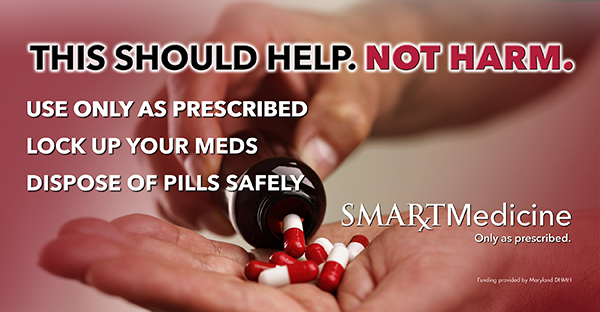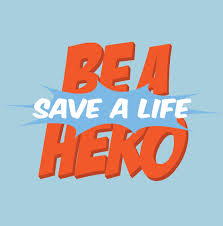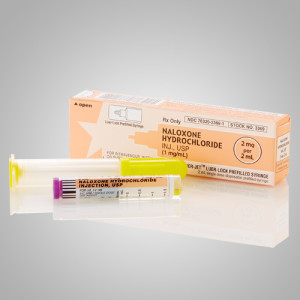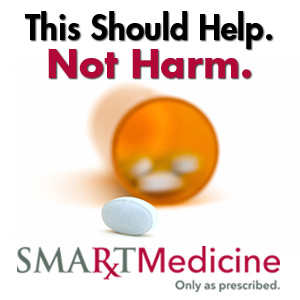St Mary’s Drug Drop Off Initiative
(Sept 18, 2015, Leonardtown, MD) Prescription drug abuse continues to be a growing national epidemic. Addiction overdoses and deaths involving non-medical prescription drug use, especially narcotic pain relievers, have risen dramatically over the last decade. This growth is fueled by misperceptions about prescription drug safety and increasing availability. Research shows that over half the number of people who obtained prescription drugs for non-medical use received them from a friend or relative at no cost, while another 15% bought them or took them from a friend or relative.
Consumers can help reduce prescription drug abuse rates by safely disposing of prescriptions through participation in the St. Mary’s County Drug Drop-Off Program. The St. Mary’s County Sheriff’s Office has a prescription drug drop-off available 24 hours a day 7 days a week. It’s located in the front lobby of the St. Mary’s County Sheriff’s Office in Leonardtownand is completely anonymous. Simply remove all identifying information on labels and place in one of the two drop boxes.
Since the Drug Drop-Off Program began in 2011, 601,015 pills, 525 controlled pain patches and 58 bottles of controlled liquids have been diverted and properly disposed. St. Mary’s County is the only community in Maryland that counts individual pills/units to provide a means of tracking over prescribed medications.
“We have the blueprint, and we know the drug take-back program works,” states Captain Daniel D. Alioto, Commander St. Mary’s County Sheriff’s Office Vice/Narcotics. “Although there is a national drug take back day on September 26 every year, here in St. Mary’s County we take back every day.It comes down to a commitment from the Sheriff’s Office and the community. This program has made an impact.”
Opportunities for safe disposal include:
- Two drop boxes located in the front office at the St. Mary’s County Sheriff’s Office in Leonardtown. Available 24 hours a day, seven days a week.
- The St. Mary’s County Department of Aging & Human Services Health Fair, Friday, October 30th, 8:30 a.m. – 3:30 p.m. at the Southern Maryland Higher Education Center in California.
- For St. Mary’s County residents facing mobility challenges, the St. Mary’s County Sheriff’s Office will offer a pick-up service to retrieve unwanted prescription medications. Contact the St. Mary’s County Department of Aging & Human Services at 301-475-4200, ext. 1050 to register. Uniformed deputies will pick-up your unwanted medications and safely transport them to the Sheriff’s Office on Saturday, September 26th. Last day to register for pick-up is Thursday, September 24th.
In addition to proper disposal, proper management of medications can also help prevent drug misuse and abuse. Keeping medications out of sight and out of reach from others in the household; never share prescriptions or take someone else’s medication, and only take medication as directed. A survey released by the National Community Pharmacists Association found that 75% of adults do not always take their prescription medication as directed. Many forget to take their medication, take less than the prescribed dosage, or stop taking it before the supply runs out. In more than half the cases, the patients made these decisions without talking to a healthcare professional.
Working in support of the prescription drug drop-off program and other overdose response initiatives are the St. Mary’s County Department of Aging & Human Services, St. Mary’s County Health Department, St. Mary’s County Sheriff’s Office, MedStar St. Mary’s Hospital, and Walden Sierra Behavioral Health. With additional input from local pharmacies and medical practitioners, the Behavioral Health Action Team was formed. The team is a subcommittee of the Healthy St. Mary’s Partnership. Its goal is to identify specific issues related to substance abuse and mental health, formulate solutions, and seek funding to assist with services.
For more information: https://healthystmarys.com/behavioral-health/smartrx/




